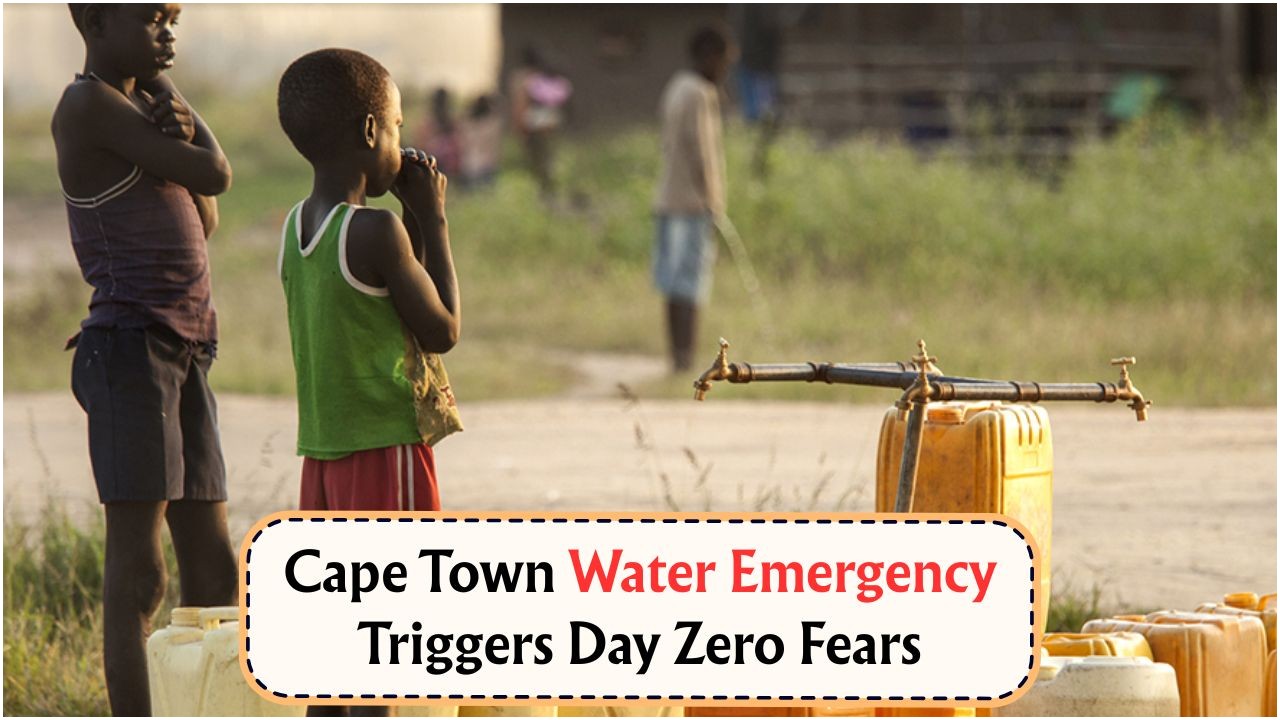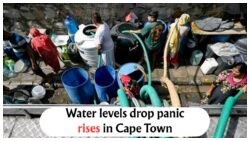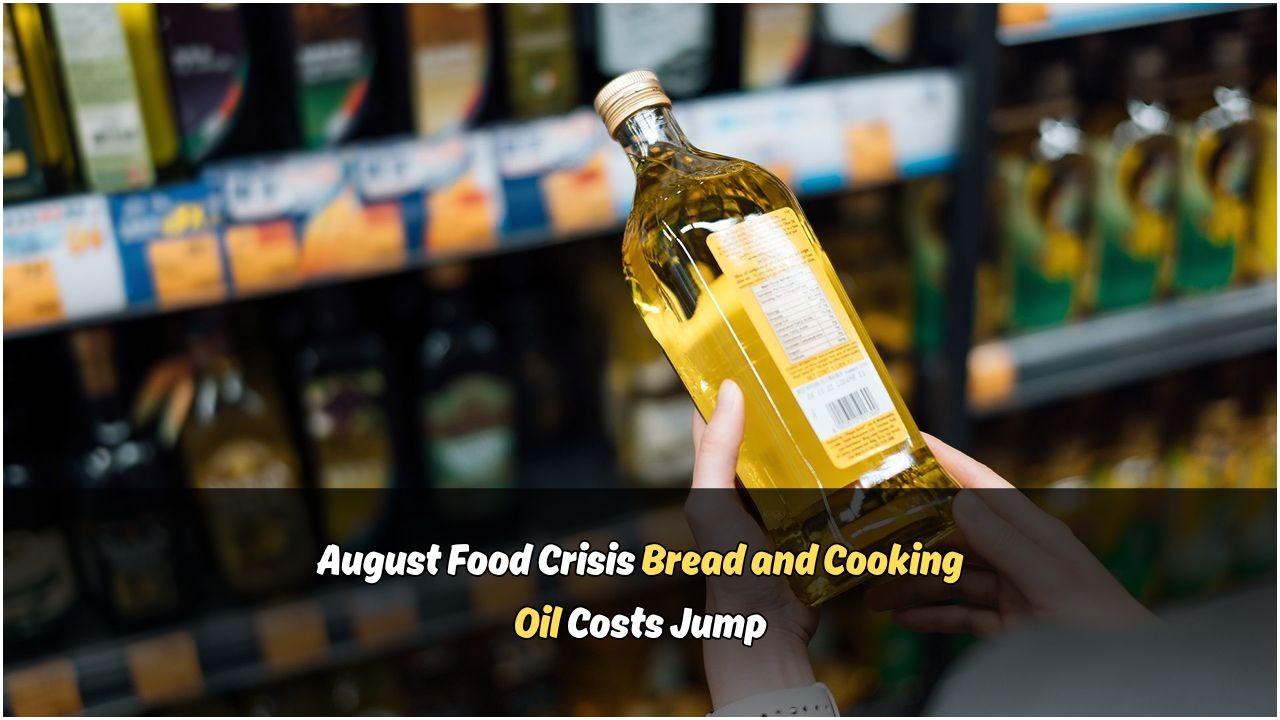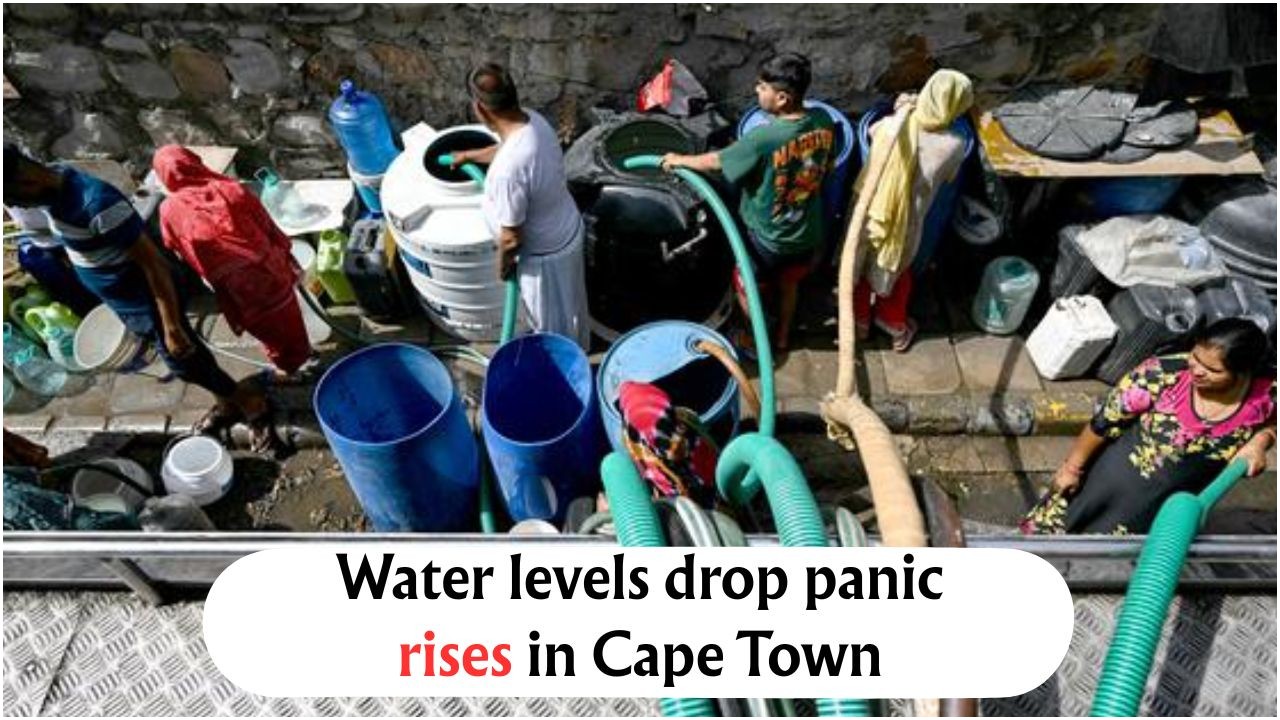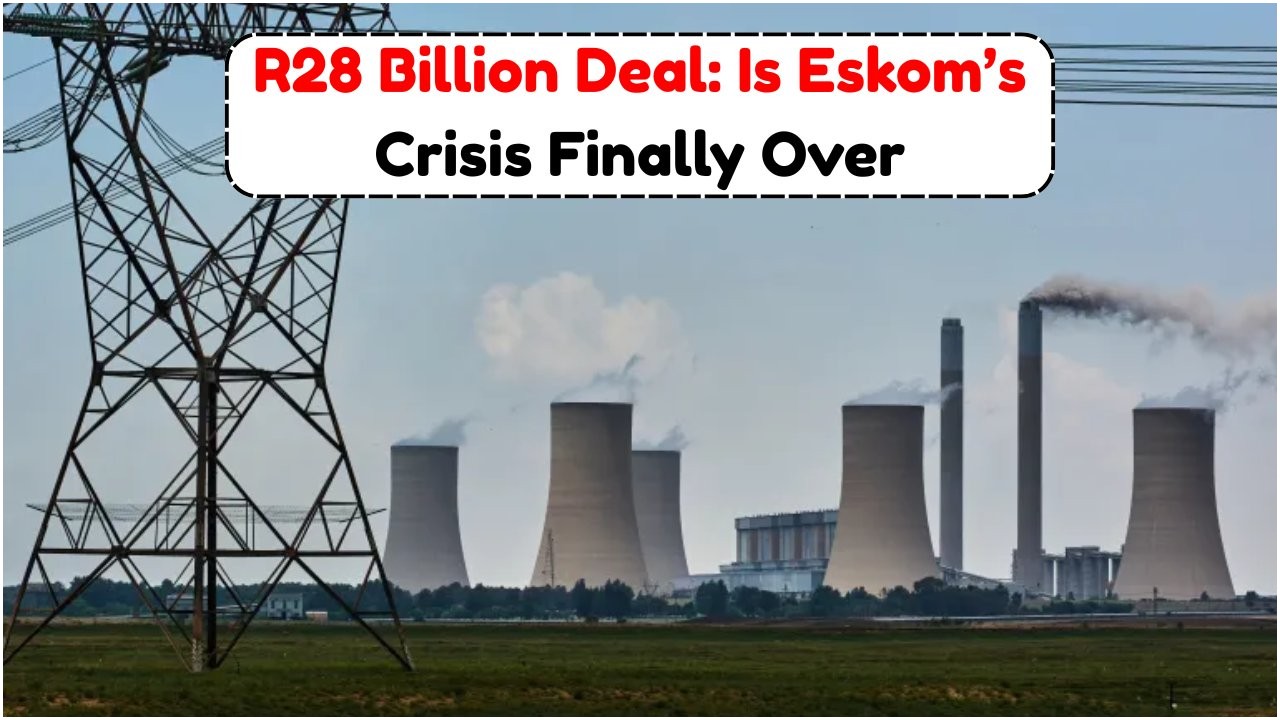Cape Town Water Crisis: Cape Town is once again grappling with the looming threat of a severe water crisis, reminiscent of the notorious Day Zero scenario that captured global attention. The city’s dams are experiencing alarming declines in water levels, raising concerns among residents and officials alike. As the dry season progresses, the possibility of reaching critical levels becomes more plausible, necessitating urgent action and sustainable solutions to avert another catastrophe. In this context, understanding the current situation, potential impacts, and the measures being implemented becomes crucial for all stakeholders involved.
Current State of Cape Town’s Dams: A Closer Look
As Cape Town faces renewed water challenges, the state of its dams is a focal point for analysis. Over the past few months, dam levels have shown a worrying trend of depletion, with key reservoirs approaching critical thresholds. The Theewaterskloof Dam, one of the largest in the region, is currently at a concerning 40% capacity, a stark reminder of the vulnerabilities faced during Day Zero. The lack of significant rainfall and the persistent drought conditions have exacerbated the situation, creating a pressing need for innovative water management strategies. Authorities are closely monitoring the levels, and contingency plans are being prepared to ensure the city can sustain water supply without reaching another crisis point.
Key Factors Contributing to Dwindling Water Levels
 Urgent Storm Surge Alert for Coastal SA: Eastern Cape and KZN Residents Advised to Seek Safety
Urgent Storm Surge Alert for Coastal SA: Eastern Cape and KZN Residents Advised to Seek Safety
- Prolonged drought conditions affecting the Western Cape.
- Increased water consumption due to population growth.
- Insufficient infrastructure to capture and store rainfall effectively.
- Climate change impacts altering traditional weather patterns.
- Limited implementation of water-saving technologies.
Impact on Local Communities: Economic and Social Implications
The potential for another severe water crisis in Cape Town extends beyond environmental concerns, significantly impacting local communities economically and socially. Businesses that rely heavily on water, such as agriculture and tourism, face severe disruptions, threatening livelihoods and economic stability. On a social level, the strain on water resources can exacerbate inequalities, as marginalized communities often bear the brunt of resource shortages. Access to clean and safe water is a fundamental right, and the current situation underscores the importance of equitable resource distribution and sustainable practices. Efforts are underway to educate communities on water conservation and implement measures to ensure fair access for all.
Strategies to Mitigate Cape Town’s Water Crisis
- Enhancing water recycling and reuse initiatives.
- Investing in desalination plants to diversify water sources.
- Promoting rainwater harvesting at residential and commercial levels.
- Encouraging efficient water usage through public awareness campaigns.
- Implementing stricter regulations on water usage in high-consumption sectors.
Government Initiatives and Public Engagement in Water Conservation
In response to the looming crisis, the South African government, in collaboration with local authorities, has rolled out several initiatives aimed at bolstering water conservation efforts. A key focus is on public engagement and education, empowering citizens to adopt water-saving habits and participate actively in conservation programs. The introduction of tiered water tariffs has encouraged responsible consumption, while incentives for businesses adopting sustainable practices have been implemented. Moreover, partnerships with NGOs and private sectors are being strengthened to innovate and expand water-saving technologies. These collective efforts aim to not only address the current challenges but also build resilience against future water scarcity threats.
| Initiative | Description | Impact | Status |
|---|---|---|---|
| Tiered Water Tariffs | Increased pricing for higher water consumption levels to encourage savings | Reduced domestic water usage by 15% | Ongoing |
| Desalination Projects | Construction of new plants to provide alternative water sources | Expected to supply 10% of city’s needs | In progress |
| Public Awareness Campaigns | Educational programs on water conservation practices | Heightened public awareness and participation | Active |
Technological Innovations in Water Management
Addressing Cape Town’s water challenges requires leveraging technology to enhance efficiency and sustainability in water management. Recent advancements have paved the way for innovative solutions, such as smart water meters that provide real-time usage data, enabling residents to monitor and adjust their consumption patterns. Additionally, the integration of AI and IoT technologies in water distribution systems helps in optimizing resource allocation and detecting leaks promptly. These technological interventions not only aid in immediate crisis management but also contribute to long-term resilience against water scarcity, ensuring that Cape Town remains prepared for future challenges.
Proactive Measures for Sustainable Water Future
- Investing in smart water infrastructure for better resource management.
- Adopting AI-driven predictive analytics for weather and water forecasts.
- Enhancing community involvement in water conservation efforts.
- Developing policies to support sustainable urban planning.
- Fostering partnerships with tech companies for innovative solutions.
Future Outlook: Preventing Another Day Zero
While the current situation in Cape Town is challenging, proactive measures can prevent another Day Zero scenario. By focusing on sustainable practices, technological innovation, and community engagement, the city can build a resilient water management system. This requires a multifaceted approach involving government policies, public participation, and private sector collaboration. As the city navigates these challenges, ongoing dialogue and cooperation among all stakeholders will be crucial in ensuring a secure water future for Cape Town and its residents. Maintaining vigilance and adaptability in strategies will be key to overcoming the current crisis and averting future threats.
| Year | Dam Levels | Water Usage Reduction | Projected Improvements |
|---|---|---|---|
| 2023 | 40% | 15% | 10% increase in desalination capacity |
| 2024 | 45% | 20% | Implementation of AI in water management |
| 2025 | 50% | 25% | Expanded rainwater harvesting initiatives |
| 2026 | 55% | 30% | Completion of new desalination plants |
FAQs on Cape Town’s Water Crisis
What caused the renewed water crisis in Cape Town?
Persistent drought conditions and increased water consumption have led to declining dam levels, sparking concerns of another crisis.
How is the government addressing the water crisis?
Authorities are implementing water conservation initiatives, investing in desalination plants, and promoting public awareness campaigns.
What role does technology play in managing the water crisis?
Technology aids in efficient water management through smart meters, AI, and IoT systems, enhancing conservation efforts and resource allocation.
How can residents contribute to water conservation?
Residents can adopt water-saving habits, participate in rainwater harvesting, and engage in community awareness programs to reduce consumption.
What long-term solutions are being considered?
Long-term strategies include expanding alternative water sources, enhancing infrastructure, and fostering innovative technologies for sustainable water management.
